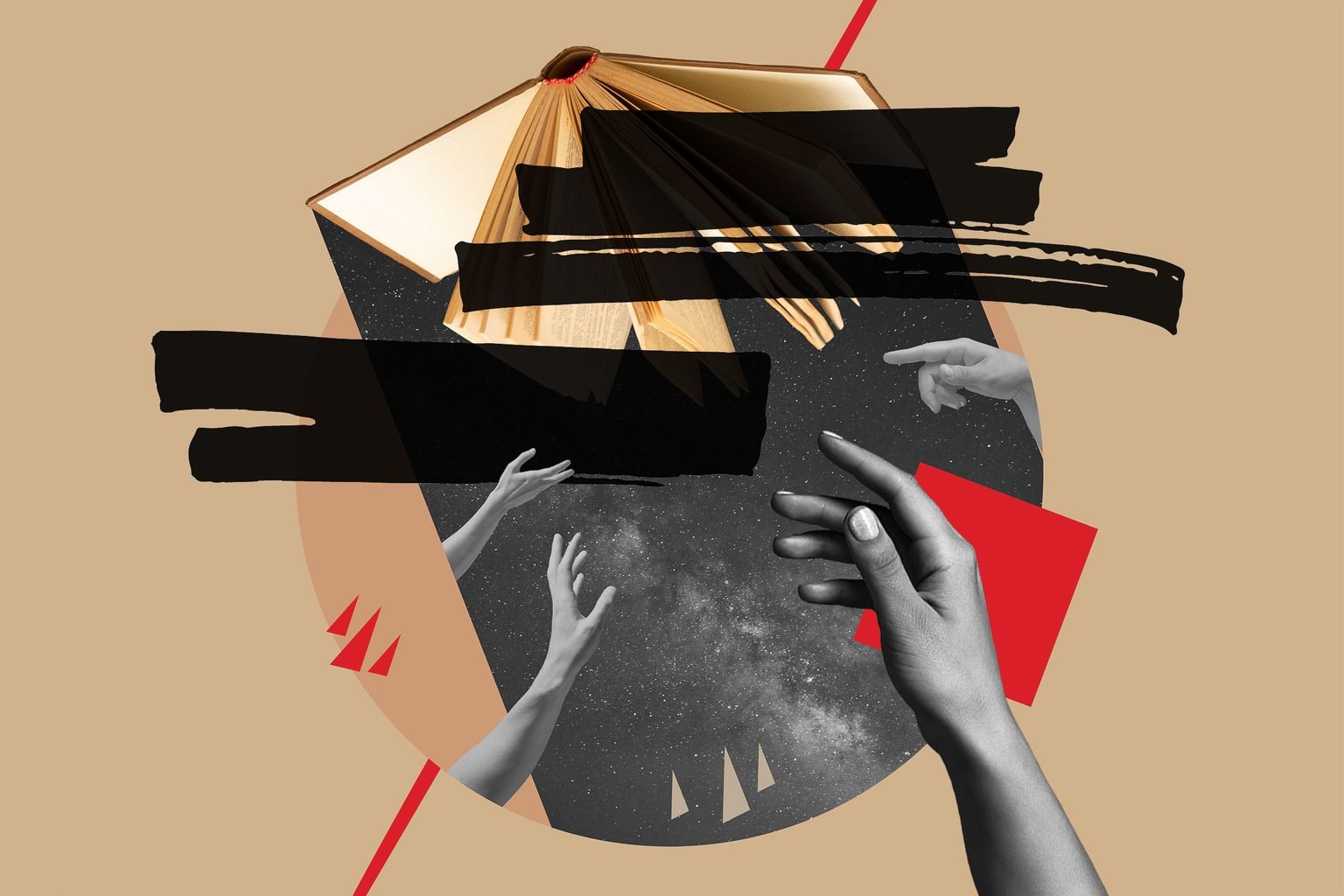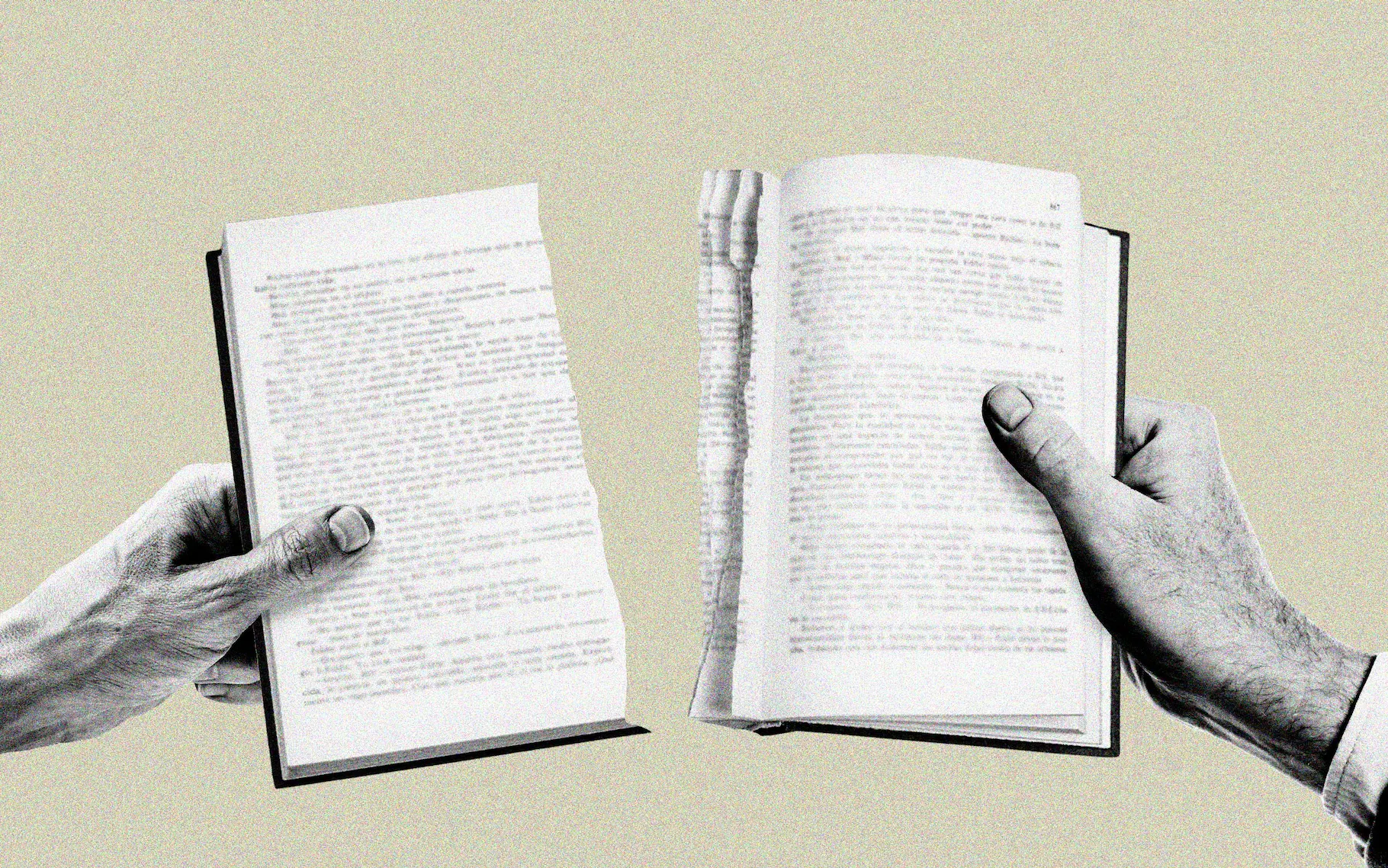Since the beginning of time, literature has been the cornerstone of intellectualism, freedom of expression, and the exchange of diverse perspectives, but what would happen if it were restricted—or perhaps, banned? Book banning and censorship have become highly debated topics over the last few decades, driven by an ideological clash between unrestricted access to diverse stories and censorship of allegedly inappropriate content.
The underlying question between this nuanced topic is the following: What marks a fine line between the protection of prevailing societal morals and suppression of literary expression?

So what is book banning? Book banning is a form of censorship to remove or limit certain books in efforts to challenge or object to an authority, such as a school board or the American Library Association. However, even though challenges are solely made by individuals, the potential banning of these books ensues the limited accessibility of everyone.
Book censorship is discriminatory and contributes 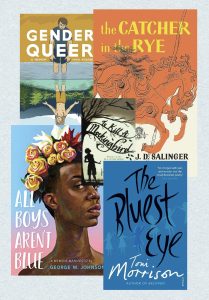 to the already existing marginalization of minority groups. According to the American Library Association, books that focus on LGBTQ+ or Black characters have been targeted, including Gender Queer by Maia Kobabe, All Boys Aren’t Blue by George M. Johnson, The Bluest Eye by Toni Morrison, etc. Even prominent literary classics like Catcher in the Rye by J.D. Salinger and To Kill a Mockingbird by Harper Lee, that poignantly address crucial topics regarding societal inadequacies such as racism, conformity, etc. have been consistently challenged and censored in schools.
to the already existing marginalization of minority groups. According to the American Library Association, books that focus on LGBTQ+ or Black characters have been targeted, including Gender Queer by Maia Kobabe, All Boys Aren’t Blue by George M. Johnson, The Bluest Eye by Toni Morrison, etc. Even prominent literary classics like Catcher in the Rye by J.D. Salinger and To Kill a Mockingbird by Harper Lee, that poignantly address crucial topics regarding societal inadequacies such as racism, conformity, etc. have been consistently challenged and censored in schools.
Book banning poses a significant threat to freedom of speech and expression. While censorship and book banning as a whole establishes this suppression, Margaret Atwood’s dystopian novel The Handmaid’s Tale is a particular instance of this issue. In the United States, the novel is among the top 100 banned titles. This unsettling narrative paints a picture of a corrupt society where women are dehumanized and deprived of their fundamental rights, tackling themes of oppression, totalitarianism, and the consequences that result from unjustly wielded power.
Intellectualism, education, and the exchange of ideas are repressed when a work like The Handmaid’s Tale is banned. It deprives readers of the opportunity to engage in different perspectives and ideas. Ultimately, book banning fosters an environment where certain thoughts and ideas are looked down upon, causing our first amendment right to be infringed and calling into question the very idea of American Democracy.
On September 25, 2023, Governor Gavin Newsom signed AB 1078, legislation that grants the Superintendent of Public Instruction the authority to make textbooks accessible to all and prohibits school boards from banning material that promotes the diversity of California’s communities. While other states are narrowing access to literature, California’s strategic investments to improve education outcomes and literacy has granted them to pocket over tens of billions of dollars.
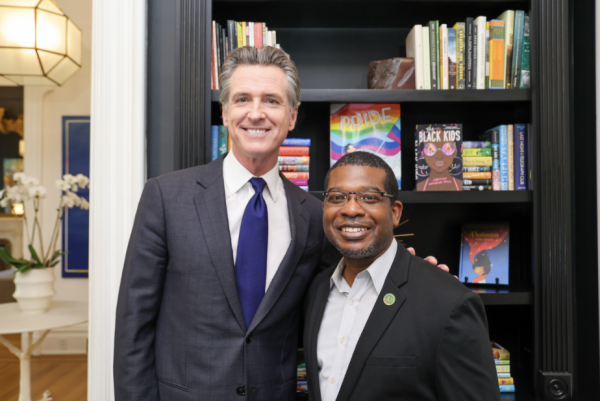
The biggest and most recurring perpetrator of book banning is Florida: HB 1069 (signed on July 1, 2023) censors books with sexual or pornographic material and with sexual orientation or gender identity material—an extension to Florida’s “Don’t Say Gay” bill. There are more books banned in public schools and libraries in the Sunshine State in comparison to any other state in the United States: they are recorded to have banned 1,406 books out of the 33% spike in book bans across the country.
Yet, in silencing the voices of their youth, Florida has amassed major criticism as schools are still trying to grapple with this new restrictive law: How far does the vague wording of “sexual conduct” extend in erasing valuable and monumental pieces of literature such as Shakespeare? As such, the passing of HB 1069 surmounted in heated protests.
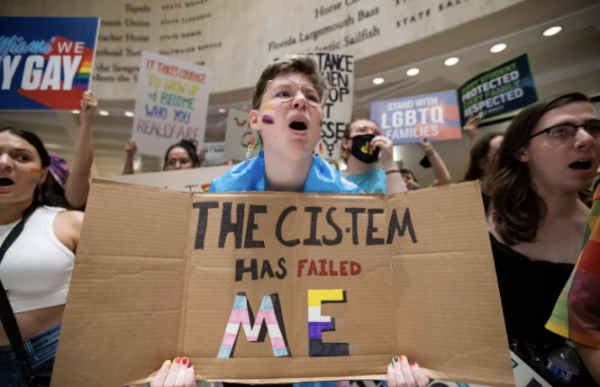
Singer Pink has also been seen front-lining the cause against book banning, pleading to give away 2,000 challenged books at her concerts in Florida. As a mom of two kids, Pink claims she cannot envision a future in America in which the government holds the voice in deciding what her children are allowed to read.
Although book banning may seem beneficial and effective in shaping society’s cultural narrative through the censorship of explicitness, sensitive topics, language, and otherwise dark or inappropriate content, it ultimately does more harm than good. Removing these books have the potential to silence the voices of historically marginalized groups, stifle literary expression, and compromise free speech by concealing individualistic notions and ideas. This issue can seem difficult to conquer as it is a legislative debate, but we can help in small ways by signing petitions, spreading the word, and exercising your right to read by checking out a banned book.
